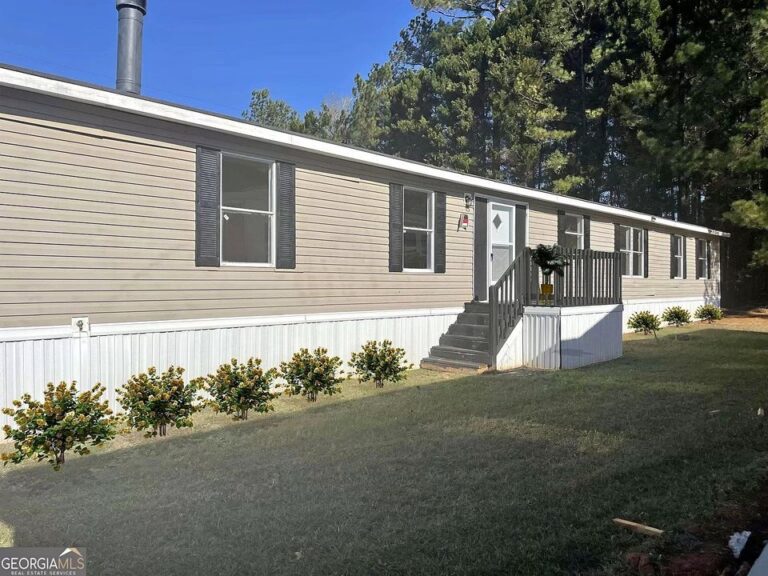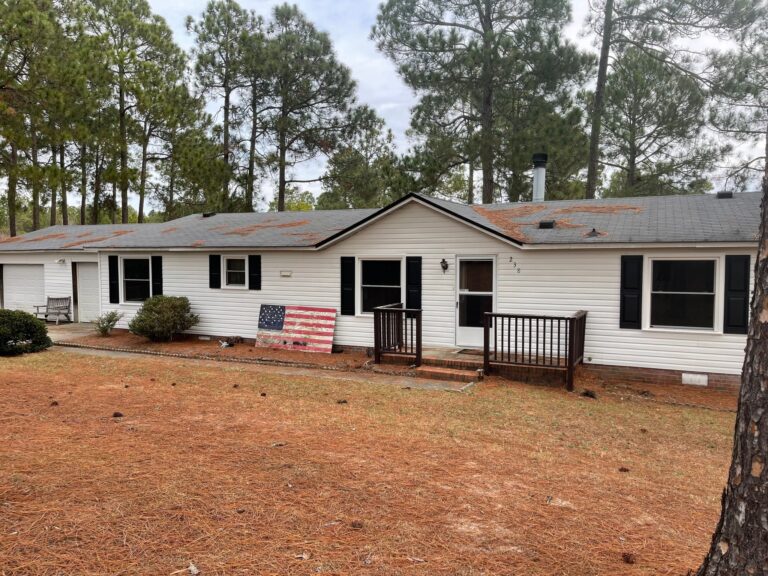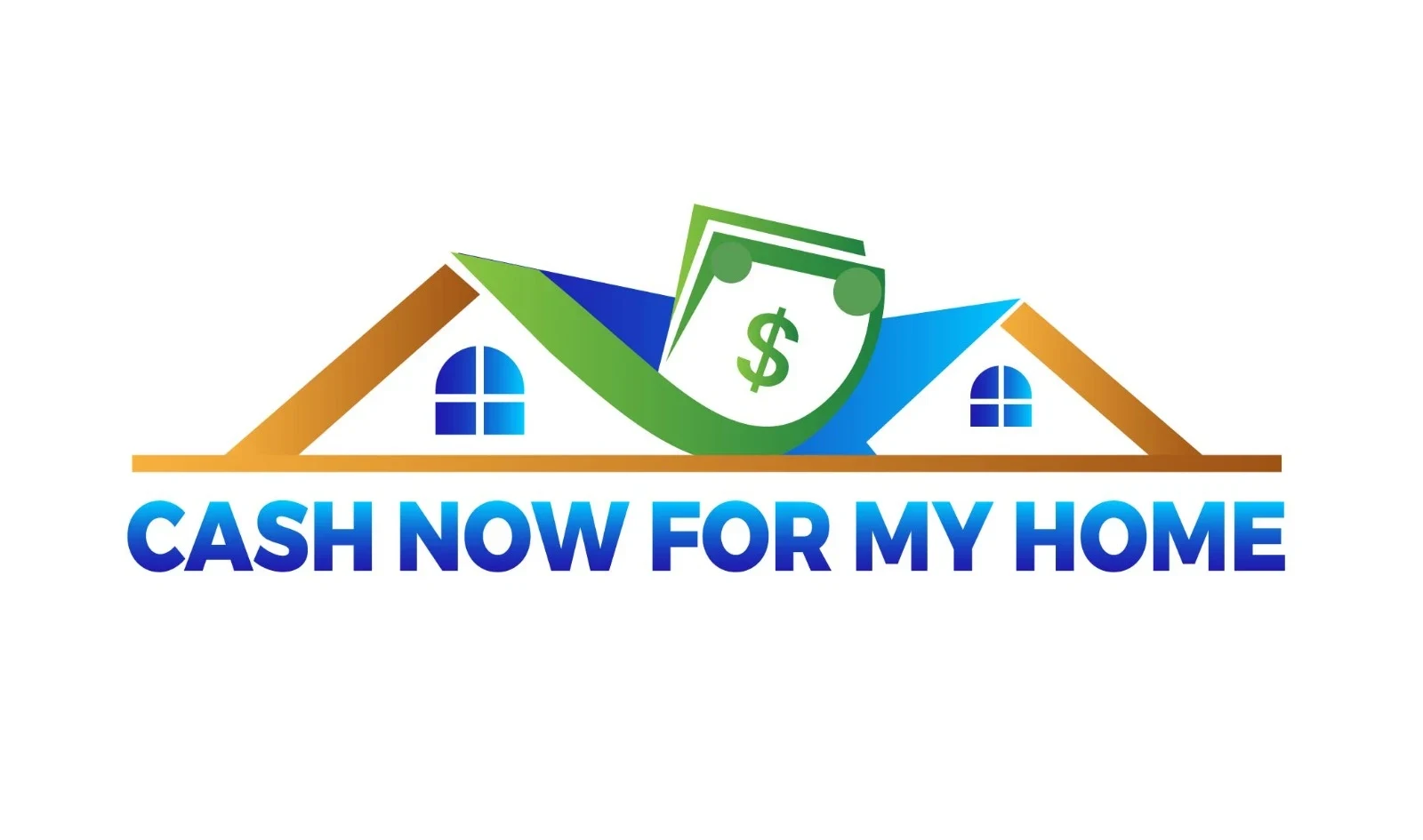Considering selling your home without a realtor? It’s an enticing prospect, but before you dive in, let’s weigh the benefits and challenges. From taking control of the process to managing open houses and showings yourself, self-listing offers independence but also demands time and effort. Understanding these aspects is crucial when deciding whether to go solo or enlist professional help.
Taking this route may attract cash buyers seeking direct contact with sellers, potentially streamlining the sales process. However, it also means shouldering responsibilities typically handled by real estate agents. Are you prepared for that? Let’s delve into how self-listing empowers sellers while simultaneously requiring them to navigate potential obstacles.
Quick Reality Check: Is FSBO Right for You?
Before diving into the FSBO process, honestly assess your situation:
FSBO Works Well When:
- You have 3-6 months to sell
- Your home is in excellent condition
- You’re comfortable with negotiations and paperwork
- You have time for showings and marketing
Consider Alternatives If:
- You need to sell quickly (under 30 days)
- Your home needs significant repairs
- You’re facing foreclosure or financial pressure
- You lack time for the selling process
💡 Alternative Option: If you need a fast, hassle-free sale, cash buyers can close in 7-14 days with no repairs, staging, or marketing required.
Understanding the Pros and Cons of Forgoing a Realtor
Weighing the Advantages
Saving money on realtor commissions is one of the primary benefits of selling your home without a realtor. Typically, realtors charge a commission of around 5-6% of the home’s sale price. By bypassing this cost, you can potentially save thousands or even tens of thousands of dollars.
Moreover, when you sell your home without a realtor, you have more control over the process. You can schedule showings at your convenience, negotiate directly with potential buyers, and make decisions without having to consult with an agent.
Selling without a realtor also allows for greater flexibility in setting the asking price. With no agent involved, you can decide on an asking price that aligns with your goals and market conditions rather than being influenced by an agent’s suggestions.

Considering Potential Drawbacks
One significant drawback to selling your home without a realtor is limited market exposure. Realtors have access to multiple listing services (MLS) and other marketing tools that can significantly increase visibility for your property. Without these resources, reaching potential buyers may prove challenging.
Handling all aspects of the sale yourself requires time and effort. From staging the property for showings to navigating complex paperwork and legal requirements – these responsibilities fall squarely on your shoulders when there’s no realtor involved.
Another drawback is dealing with negotiations directly; it requires confidence in assessing offers accurately while avoiding common pitfalls like underselling or overpricing based on emotions rather than market data.
Assessing Your Ability
Assessing whether you’re capable enough to handle selling on your own involves considering various factors such as familiarity with local housing laws and regulations. Furthermore, are you comfortable conducting open houses? Are you confident about negotiating terms with potential buyers?
It’s essential to evaluate if you have adequate knowledge about pricing strategies based on current market trends; understanding how comparable properties are priced will be crucial in determining an optimal asking price for yours.
Whether you are looking to sell a mobile home or a stick built home we can help you today! Get fast cash for your home today.
Preparing Your Home for Sale on Your Own
Staging Your Home
When selling a home without a realtor, it’s crucial to stage your home effectively. This means arranging furniture and decor in a way that highlights the best features of your home. Consider removing personal items like family photos to help potential buyers envision themselves living there.
Staging can also involve making small upgrades, such as adding fresh paint or updating fixtures. These simple changes can make a significant impact on how appealing your home is to prospective home buyers during showings and open houses.
Making Necessary Repairs and Improvements
Before listing your property, it’s essential to address any necessary repairs and improvements. This might include fixing leaky faucets, repairing damaged flooring, or replacing outdated appliances. By ensuring that everything is in good working condition, you can present your home in the best possible light.
Consider making strategic improvements that can increase the value of your home. For instance, enhancing curb appeal by landscaping the front yard or adding square footage through finishing an unfinished basement could significantly boost its attractiveness to potential buyers.
Decluttering and Depersonalizing
Decluttering and depersonalizing are key steps when preparing to sell your home without a realtor. Removing excess clutter helps create an impression of spaciousness while allowing buyers to focus on the unique features of the property rather than being distracted by clutter.
Depersonalizing involves minimizing personal items such as photographs or memorabilia so that potential buyers can visualize themselves living in the space more easily. When done effectively, these efforts allow you to showcase your home’s full potential without overwhelming visitors with personal belongings.
Types of Pre Made Steps for Mobile Homes: Wood, Concrete, Fiberglass
The Wood Steps: Classic and Customizable
Wood steps are a popular choice for mobile homes due to their timeless appeal and customizable options. These steps offer a classic and natural look that can enhance the overall aesthetic of your mobile home. With wood steps, you have the freedom to choose from various types of wood, such as oak or cedar, allowing you to match the steps with your home’s exterior.
One advantage of wood steps is their versatility. They can be easily customized to fit your specific needs and preferences. Whether you prefer a simple design or intricate detailing, wood steps can be tailored accordingly. If you want to add a personal touch, you can stain or paint the wood steps to complement your home’s color scheme.
Concrete Steps: Durability and Stability
If durability and stability are your primary concerns, concrete steps are an excellent option for your mobile home. These pre made steps provide exceptional strength and resilience against harsh weather conditions. Whether it’s scorching heat or heavy rain, concrete steps will withstand the test of time without losing their structural integrity.
Concrete steps also offer a low-maintenance solution for mobile homeowners. Unlike wood that requires periodic staining or sealing, concrete only needs occasional cleaning with soap and water to maintain its appearance. Furthermore, concrete is resistant to rotting or warping caused by moisture exposure.
Fiberglass Steps: Lightweight and Low-Maintenance
For those seeking a lightweight alternative without compromising durability, fiberglass steps are an ideal choice. These pre made steps are constructed using reinforced fiberglass materials that make them significantly lighter than other options like stone or alloy metal. This feature not only simplifies installation but also allows for easier mobility if needed in the future.
In addition to being lightweight, fiberglass steps require minimal maintenance compared to wood or concrete alternatives. Their non-porous surface prevents water absorption and eliminates concerns about rotting or warping. This low-maintenance characteristic makes fiberglass steps an attractive option for busy mobile homeowners who prefer to spend less time on upkeep.
If you are looking for steps for your mobile home and you want to have them shipped right to your home. Visit this link.
Whether you are looking to sell a mobile home or a stick built home we can help you today! Get fast cash for your home today.

Setting a Competitive Listing Price
Researching Recent Sales
To sell a home without a realtor, it’s crucial to research recent sales in your area to determine the market value. Look for homes similar to yours that have sold recently. Consider factors such as location, size, condition, and amenities when comparing properties. Online real estate databases and local property records can provide valuable insights into recent sales prices.
When researching recent sales, pay attention to both the list price (the price at which the property was initially listed) and the final sale price. This information will help you gauge how competitive your listing price should be. By analyzing comparable listings and their final sale prices, you can gain a better understanding of what buyers are willing to pay in your area.
Pricing Strategies
When setting the listing price for your home, consider pricing strategies that attract buyers while maximizing profit. One effective strategy is pricing slightly below market value to generate interest and potentially spark multiple offers. This approach can create a sense of urgency among potential buyers and lead to a quicker sale.
Another strategy involves pricing at or just above market value while highlighting unique features or upgrades that justify the asking price. Emphasizing these selling points can help justify the higher list price while still attracting interested buyers who recognize the added value.
Avoiding Common Mistakes
Avoiding common pricing mistakes is essential when aiming to sell a home without a realtor successfully. Some sellers make the mistake of overpricing their homes based on emotional attachment or unrealistic expectations, which can deter potential buyers from considering their properties.
Conversely, underpricing could result in leaving money on the table if multiple offers do not materialize as expected during negotiations with prospective buyers. It’s also important not only consider listing fees but also avoid undervaluing your property due to concerns about saving money on commission costs typically associated with using a realtor.
Quick Sale Alternative: If market research shows your home would take months to sell or needs significant price reductions, consider getting a cash offer. Cash buyers purchase homes as-is, often matching or exceeding what you’d net after realtor commissions, repairs, and holding costs.
Marketing Your Home Without a Realtor
Online Listing
When selling a home without a realtor, creating an effective online listing is crucial. It should include compelling photos and descriptions that highlight the best features of the property. Potential buyers are drawn to visually appealing listings with clear, detailed information about the home’s amenities, layout, and unique selling points. For example, using high-quality images of the interior and exterior spaces can capture buyers’ attention and generate more interest in the property.
Utilizing social media platforms and online classifieds for additional exposure can significantly expand the reach of your listing. By leveraging platforms like Facebook, Instagram, or Twitter, you can showcase your property to a wider audience beyond traditional real estate channels. Posting engaging content such as virtual tours or interactive posts about your home can help attract potential buyers who might not actively be searching through conventional real estate listings.
Open Houses and Private Showings
Hosting open houses and scheduling private showings are essential strategies for generating interest when selling a home without a realtor. Open houses provide an opportunity for prospective buyers to explore the property firsthand while also allowing you to engage with them directly. Scheduling private showings enables interested parties to view the home at their convenience in a more personalized setting.
Navigating Legal Requirements and Paperwork
Understanding Local Laws
When selling a home without a realtor, it’s crucial to familiarize yourself with the local laws and regulations governing home sales. These laws vary by location, so it’s essential to understand the specific requirements in your area. For instance, some regions may have specific disclosure requirements regarding the condition of the property or environmental hazards. By understanding these legal obligations, you can ensure that your home sale complies with all necessary regulations.
It’s also important to be aware of any timelines or deadlines associated with the sale process. In some areas, there may be specific steps that must be followed within certain time frames. Being knowledgeable about these aspects will help you avoid potential legal issues that could arise from missing important deadlines.
Essential Documents and Professional Guidance
Preparing essential documents is a critical aspect of selling a home without a realtor. This includes creating detailed disclosure forms outlining any known issues with the property, as well as drafting comprehensive purchase agreements that outline the terms of the sale. Ensuring that these documents are accurate and complete is vital for protecting both you as the seller and potential buyers.
While it’s possible to handle this paperwork independently, seeking professional guidance can provide valuable assistance in ensuring compliance with legal obligations. Consulting with a real estate attorney or other qualified professional can offer valuable insight into navigating complex legal requirements while providing peace of mind throughout the process.
Simplify Legal Complexities: If legal requirements seem overwhelming, cash buyers handle all paperwork and legal compliance, eliminating your risk of missing critical requirements or deadlines.
In addition to legal considerations, obtaining professional guidance can also help streamline administrative tasks such as coordinating inspections and appraisals while managing communications with potential buyers.
Whether you are looking to sell a mobile home or a stick built home we can help you today! Get fast cash for your home today.
When FSBO Becomes Too Challenging: Know Your Alternatives
Common FSBO Roadblocks
Many homeowners start the FSBO process but encounter unexpected challenges:
Time Consumption:
- Average FSBO takes 3-6 months vs 30 days for cash sales
- 15-20 hours per week managing showings, calls, and paperwork
- Evenings and weekends consumed by open houses
Financial Surprises:
- Marketing costs ($500-2000)
- Legal fees ($500-1500)
- Repair requests from buyers (often $2000-8000)
- Holding costs during extended market time
Stress Factors:
- Difficult negotiations with buyers
- Managing multiple contingencies and inspections
- Dealing with financing delays and deal failures
The Cash Buyer Alternative
If FSBO becomes overwhelming, cash home buyers offer a streamlined alternative:
Benefits:
- 7-14 day closing vs months of marketing
- No repairs required – sell as-is condition
- No showings or open houses – single property visit
- Guaranteed closing – no financing contingencies
- Zero marketing costs – no advertising needed
When Cash Sales Make Sense:
- Time constraints (job relocation, foreclosure)
- Property needs significant repairs
- Inheritance properties requiring quick resolution
- Rental properties with difficult tenants
- Divorce situations requiring immediate sale
FSBO vs Cash Sale: Cost Comparison
FSBO Potential Costs:
- Marketing and advertising: $500-2000
- Legal and closing costs: $1000-3000
- Repairs and staging: $2000-8000
- Holding costs (utilities, taxes): $200-500/month
- Total: $3700-13500+ over 3-6 months
Cash Sale Costs:
- Closing costs: Typically covered by buyer
- Repairs: $0 (sold as-is)
- Marketing: $0
- Time investment: Minimal
- Total: Often $0 out of pocket

Managing Home Inspections and Avoiding Delays
Importance of Home Inspections
When selling a home without a realtor, home inspections play a crucial role in the process. These inspections are vital as they provide potential buyers with an overview of the property’s condition. They can also reveal any underlying issues that may affect the sale. By allowing prospective buyers to conduct thorough inspections, you demonstrate transparency and build trust.
Home inspections give buyers confidence in their purchase decision. Addressing any concerns raised during these inspections promptly shows your commitment to ensuring a smooth transaction. This proactive approach not only instills confidence in potential buyers but also helps avoid delays that could arise from unresolved inspection-related matters.
Proactive Issue Resolution
Upon receiving the inspection report, it’s essential to address any identified issues promptly. Being proactive in resolving these matters demonstrates your dedication to facilitating a seamless transaction for the buyer. By swiftly addressing repairs or other concerns, you mitigate delays that could potentially derail the sale.
In some cases, buyers might request repairs or credits based on inspection findings as part of their negotiation strategy. It’s important to work closely with them and find mutually beneficial solutions while keeping the sales process on track.
Being proactive doesn’t stop at addressing repair requests; it extends to working with relevant parties such as contractors and service providers to ensure timely completion of necessary repairs or improvements before closing the deal.
Skip Inspection Hassles: Tired of repair negotiations and inspection contingencies? Cash buyers purchase homes as-is, with no inspection contingencies or repair requirements.
Conducting Market Research for Optimal Sale Results
Analyzing Market Trends
To sell a home without a realtor, start by conducting thorough market analysis. Look at recent sales in your area to understand the average selling price. Identify if the market is currently favoring buyers or sellers. This data will help you set a competitive and realistic price for your property.
When analyzing local market trends, consider factors like the time properties spend on the market, fluctuations in prices over time, and any patterns in buyer preferences. For instance, if homes with specific features or amenities are selling quickly, you can use this information to highlight similar aspects of your property during marketing.
Understanding these details allows you to make informed decisions about when to list your home and what aspects may need improvement before listing it for sale.
Target Buyers
Identifying potential buyers is crucial when aiming to sell a house without involving a realtor. Consider who might be interested in purchasing your property based on its location, size, style, and other relevant factors. Tailor your marketing efforts towards these groups using various channels such as social media platforms and online listings.
For example:
If your home is located near schools and parks, families with children could be an ideal target.
If it’s a smaller property located downtown, young professionals or empty nesters might find it appealing.
By understanding who may be interested in buying your home, you can adjust how you present its key features and benefits to attract their attention effectively.
Adapting Selling Strategy
The ability to adapt your selling process based on changing conditions is essential when navigating the real estate market solo. Keep an eye on competing properties that are also up for sale; this helps determine how fast homes are selling around yours and at what prices they’re being listed.
If there’s high demand but low inventory in your area (a seller’s market), you might have more flexibility with pricing strategy compared to when there’s ample inventory (a buyer’s market). Being aware of these dynamics enables you to make timely adjustments that can positively impact both interest from potential buyers and ultimately the profit from the sale of your home.
Whether you are looking to sell a mobile home or a stick built home we can help you today! Get fast cash for your home today.

Handling Negotiations and Safety Considerations
Effective Negotiation Skills
Developing negotiation skills is crucial when you decide to sell a home without a realtor. To secure favorable offers, it’s important to understand the art of negotiation. You need to be able to communicate your needs clearly and assertively while also being open to compromise. For example, if a potential buyer presents an offer with contingencies that are not feasible for you, effective negotiation skills will help you navigate this situation.
Knowing how to counteroffer or make adjustments in the purchase agreement can significantly impact the outcome of the deal. By honing your negotiating abilities, you can ensure that both parties feel satisfied with the final arrangements.
Prioritizing Safety
When selling your home without a realtor, prioritizing safety during showings and negotiations is essential. Implementing precautions such as having someone else present during showings or utilizing security measures like smart locks can help ensure your safety. It’s important to establish clear boundaries regarding access to certain areas of the property during showings.
Consider meeting potential buyers in public places before allowing them into your home for private viewings. This initial step allows you to gauge their intentions and ensures added safety measures before inviting them into your personal space.
Seeking Professional Advice
While handling negotiations independently is empowering, there may come a time when seeking professional advice or mediation becomes necessary. Complex negotiations involving legal aspects or intricate contract details might require expert input.
If you encounter challenges related to specific clauses in the purchase agreement or contingencies proposed by potential buyers, consulting with a real estate attorney could provide invaluable guidance. Similarly, if tensions arise between you and prospective buyers during negotiations, enlisting the services of a professional mediator could help facilitate smoother communication and resolution.
Exploring All Your Selling Alternatives
When FSBO Isn’t Working
If you’ve tried FSBO for 60-90 days without success, consider these alternatives:
Traditional Realtor Route:
- Professional marketing and MLS exposure
- Negotiation expertise and market knowledge
- Full-service but 5-6% commission cost
Discount Brokerages:
- Limited services for reduced fees (1-3%)
- You handle showings and negotiations
- MLS listing and basic marketing included
Cash Home Buyers:
- Fastest option – close in 7-14 days
- No fees or commissions – keep more money
- No repairs or staging – sell exactly as-is
- Guaranteed closing – no financing delays
Mobile Home FSBO Challenges
Selling mobile homes FSBO presents unique difficulties:
Limited Buyer Pool:
- Fewer qualified buyers due to financing challenges
- Seasonal market fluctuations affect demand
- Location restrictions limit potential buyers
Financing Complications:
- Many lenders don’t offer mobile home loans
- Chattel vs real estate loan confusion
- Higher down payment requirements for buyers
Specialized Knowledge Required:
- Mobile home title vs deed differences
- Park approval processes and regulations
- Transportation and setup cost considerations
Mobile Home Solution: Specialized mobile home buyers understand these unique challenges and can provide quick, fair cash offers without the FSBO complications.

Conclusion and Final Thoughts on Self-Listing
You’ve now gained a comprehensive understanding of what it takes to sell your home without a realtor. From weighing the pros and cons to setting a competitive listing price and navigating legal requirements, you’re equipped with the knowledge to embark on this journey. Remember, self-listing demands dedication, attention to detail, and a willingness to take on various responsibilities typically handled by a realtor. As you venture into this process, always prioritize thorough research and seek professional advice when necessary.
In the end, selling your home without a realtor can be a rewarding experience, both financially and personally. It’s a chance to take control of your home sale and make decisions that align with your best interests. So, as you move forward, keep these insights in mind, stay proactive, and trust in your ability to successfully navigate the complexities of selling your home without a realtor.
Frequently Asked Questions: Sell a Home Without a Realtor
How can I prepare my home for sale without a realtor?
To prepare your home for sale without a realtor, start by decluttering, deep cleaning, and making any necessary repairs. Consider staging to enhance appeal. Professional photos can make your listing stand out.
What are the legal requirements when selling a home without a realtor?
When selling your home without a realtor, you’ll need to familiarize yourself with local laws and regulations regarding property disclosures, contracts, and any specific requirements for your area. Consider consulting with a real estate attorney to ensure compliance.
Is it possible to set a competitive listing price without using a realtor’s services?
Yes, you can determine an appropriate listing price by researching comparable properties in your area that have recently sold or are currently on the market. Online valuation tools and professional appraisals may also provide valuable insights.
How do I effectively market my home without enlisting the help of a realtor?
Utilize online platforms like social media, FSBO websites, and classified ads to reach potential buyers. High-quality photos and compelling descriptions are essential. Hosting open houses or virtual tours can also attract interested parties.
Are there alternatives to selling my home without involving a realtor?
If managing the entire sales process independently seems daunting or time-consuming, consider alternative options such as discount brokerages or flat-fee MLS services that provide varying levels of assistance while still saving on traditional commission fees.
What if my FSBO isn’t working after 3 months?
If your FSBO hasn’t generated serious offers after 90 days, consider alternatives. Cash buyers can provide an offer within 24 hours and close in 7-14 days, which may net you more money than continuing FSBO with holding costs and price reductions.
Is FSBO worth it for mobile homes?
Mobile homes face unique FSBO challenges including limited financing options for buyers and smaller buyer pools. Mobile home cash buyers often provide better net proceeds than FSBO due to their expertise and ability to close quickly.
How do I know if I should switch from FSBO to a cash sale?
Consider switching to a cash sale if:
- No offers after 60+ days
- Multiple deals falling through due to financing
- Repair requests exceeding your budget
- Time constraints requiring quick sale
- Stress affecting your daily life
Related Home Selling Resources:
FSBO Support:
- Get a Cash Offer – Skip FSBO Hassles – Fast alternative to FSBO
- Mobile Home Selling Guide – Specialized guidance for mobile homes
Additional Selling Resources:
Struggling with FSBO? Get a cash offer today – Close in 7-14 days with no repairs, commissions, or hassles.

